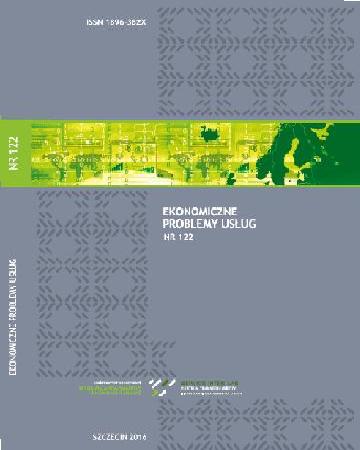
ISSN: 1896-382X
eISSN: 2353-2866
OAI
DOI: 10.18276/epu.2018.133/2-05



Issue archive /
nr 133 (2) 2018
The Low-Carbon Transport Fund as a Source of Financing the Electromobility Development in Poland
| Authors: |
Bartosz
Pilecki
University of Szczecin Andrzej Binka The Marshal’s Office of the West Pomeranian Region |
| Keywords: | Low-emission Transport Fund financing electromobility electromobility in Poland low-carbon economy low-emission transport |
| Data publikacji całości: | 2018-12-10 |
| Page range: | 10 (51-60) |
| Klasyfikacja JEL: | H29 O13 O25 Q28 O38 Q59 |
Abstract
The Act on electromobility introduced in Poland, within the scope of its regulation, implements a European directive on the development of alternative fuels infrastructure, the aim of which is to minimize the dependence on oil and to reduce the impact of transport on the environment. An important factor in the development of electromobility in Poland is the increased availability of charging infrastructure. The aim of the publication is to analyze the Low-Emission Transport Fund in terms of financing the electromobility development in Poland. The article consists of four parts preceded by an introduction and ending with conclusions. The applied research methods are: critical analysis of the literature (theoretical approach to issues related to low-emission economy, electromobility and distribution system operators), secondary documents analysis (desk research) relying on presentation of included in legal acts and program documents assumptions and logical reasoning method contributing to presentation of applications and implementation of the purpose of publication. The conclusions included in the final part of the article concern the identification of the planes of the Low-Carbon Transport Funds impact in the context of its functioning as a financial instrument.
Download file
Article file
Bibliography
| 1. | Act of 6 June 2018 amending the Act on biocomponents and liquid biofuels and certain other acts, Journal of Laws. Pos. 1356. |
| 2. | Act of 11 January 2018 on electromobility and alternative fuels, Journal of Laws. Pos. 317. |
| 3. | The Chancellery of the Prime Minister (2018). Draft Act amending the Act on biocomponents and liquid biofuels and some other acts. Retrieved from: https://www.premier.gov.pl/wydarzenia/ decyzje-rzadu/projekt-ustawy-o-amendment-laws-about-biocomponents-and-biofuels-liquids-1.html (31.08.2018). |
| 4. | Development plan for Electromobility in Poland “Energy to the Future” (2017). Warsaw: Ministry of Energy. |
| 5. | Directive of the European Parliament and of the Council 2014/94/ EU of October 22, 2014 on the development of alternative fuels infrastructure (2014). UJ L 307. |
| 6. | Drożdż, W. (2018a). Elektromobilność w rozwoju miast. Warsaw: Wydawnictwo Naukowe PWN. |
| 7. | Drożdż, W. (2018b). Operator systemu dystrybucji w dobie wyzwań innowacyjnej energetyki. Zeszyty Naukowe Instytutu Gospodarki Materiałów Mineralnych i Energia PAN, 102, 291–300. |
| 8. | National framework for alternative fuels infrastructure development policy (2017). Warsaw: Ministry of Energy. |
| 9. | Obserwatorium Rynku Paliw Alternatywnych (2018). Study: What do Poles think about electromobility? Retrieved from: http://www.orpa.pl/badanie-co-o-elektromobilnosci-sadza-polacy/ (31.08.2018). |
| 10. | Pająk, K. (2013). Bezpieczeństwo energetyczne w jednostkach samorządu terytorialnego. In: K. Pająk, A. Ziomek, S. Zwierzchlewski (eds.), Ekonomia i zarządzanie energią a rozwój gospodarczy (pp. 39–59). Toruń: Wydawnictwo Adam Marszałek. |
| 11. | Pilecki, B. (2018). Regional operational programs 2014–2020 as a financial instrument supporting low-carbon economy in Poland on the example of the West Pomeranian Voivodeship. European Journal of Service Management, 3 (27/1), 211–216. |